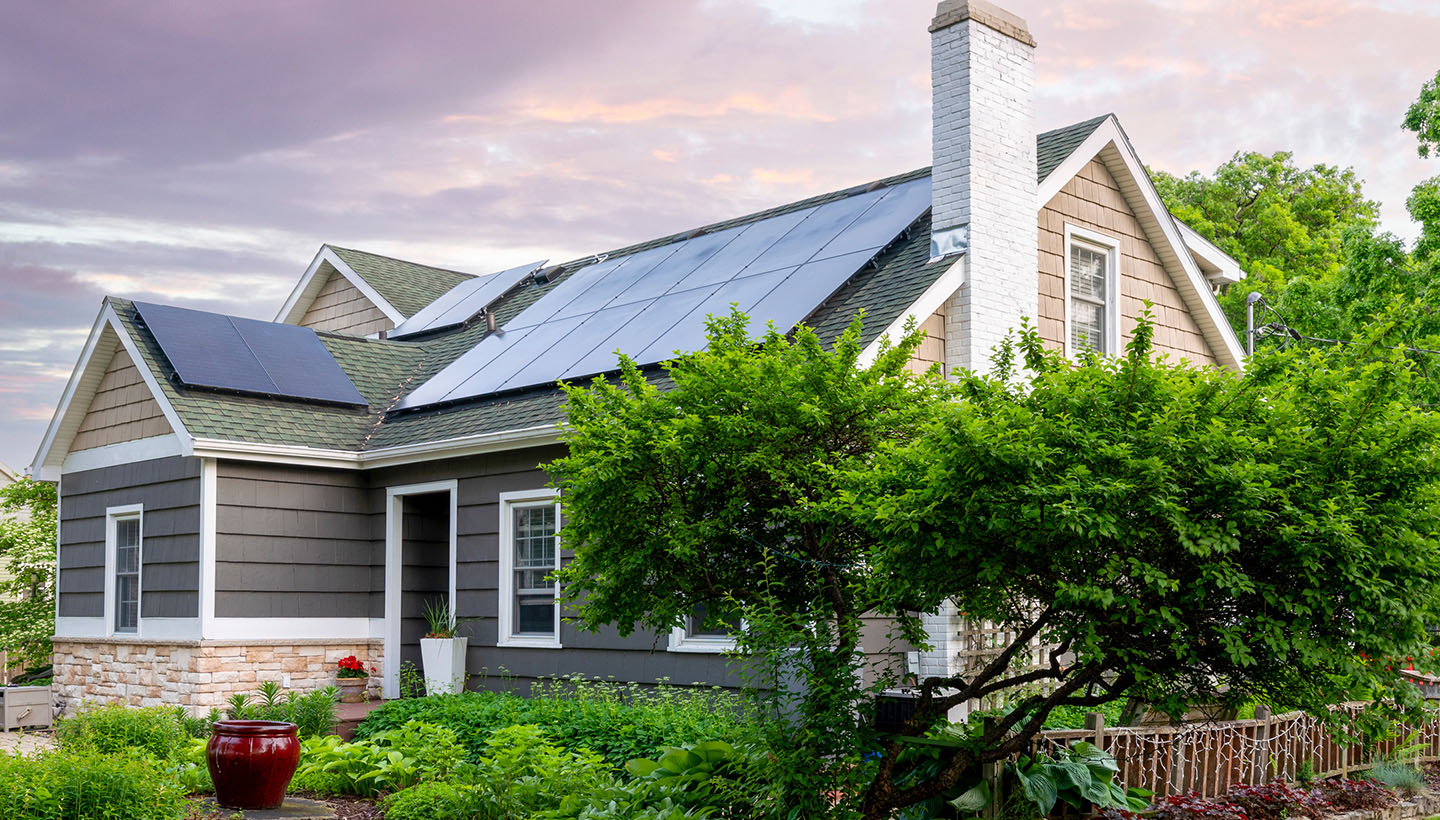
Environmental Home Inspection: A Guide to Green Home Inspections
If you’re planning to buy, build, or renovate a green home, the question “What kind of home inspection do I need?” can be confusing.
If you’ve done a little research, you might have come across these terms: green home inspection, environmental home inspection, sustainable home inspection, eco-friendly home inspection, and LEED-certified home inspection. But what on earth is the difference?
These terms all refer to home inspection services performed on a home with eco-friendly features. So, rest assured, there isn’t a whole lot of difference!
But there are nuances (of course!). Let’s work our way through this guide to green home inspections.
What Is a Green Home?
First, let’s back up a little. What is a green home?
Green homes (and buildings) are constructed in a way that’s conscious of our impact on the environment – and reducing it. When you’re building or renovating a green home, you’ll likely consider its:
- Sustainability
- Energy efficiency
- Water conservation
- Waste reduction
- Indoor air quality
- Resilience
Aside from your carbon footprint, there are a few other key benefits of green home building. These include:
- Lower Homeownership Costs. Less energy and water usage – and an emphasis on recycling and reusing resources – add up to big savings on utility bills.
- More Durable Home Construction. Maintenance is often reduced thanks to the use of more durable and renewable construction materials. Homes are also more resilient in various climates.
- A Healthier Indoor Environment. A focus on improved indoor air quality creates an overall healthier indoor space for everyone living inside.
If you’re looking to learn more about green home buildings, design, techniques, materials, and benefits, check out the links below:
- National Association of Home Builders – Introduction to Green Building for Consumers
- Energy.gov – Efficient Home Design
- LEED Certification for Residential Design and Construction
Key Features of Green Homes
The “greenest” homes are those that are certified by LEED, the Leadership in Energy and Environmental Design for Homes Program (LEED-certified). This designation means a home has achieved the highest level of eco-friendliness to promote better environmental outcomes, lower utility bills, and increased health and comfort for homeowners.
LEED-certified homes, along with homes constructed with some eco-friendly elements, can include any of these features:
- Sustainable, resilient home design (also known as passive design)
- Eco-friendly building materials
- Smart programmable thermostats
- Heat-reflective cool roofs
- Roof solar panels to convert solar energy
- Heat-reflective photovoltaic solar panels on windows and doors
- Energy-saving ENERGY STAR™ appliances
- Water conservation features such as low-flow showerheads, tankless water heaters, and dual-flush toilets
- Tighter insulation to reduce hot and cool air loss
- Energy efficient lighting
- Low VOC (Volatile Organic Compound) paint, flooring, and cabinetry
- Efficient geothermal heating and cooling systems
- Efficient radiant floor heating
- Skylights and clerestory windows to improve natural lighting
- Rainwater collection systems to store and reuse rainwater
- Grey water collection systems to store, treat, and reuse wastewater
- Thoughtful landscape design that provides natural flood and storm risk mitigation
- Zero-waste design features including spaces dedicated to recycling, composting, and reusing materials
Types of Green Home Inspections
“Green home inspections” and “environmental inspections” refer to a few different kinds of home evaluations you might need when you’re buying, building, or renovating a green home.
Energy Audits
An energy audit is a detailed evaluation of your home’s energy consumption. This process is typically performed by a home inspector who has undergone additional training to analyze home energy usage. The inspector will evaluate the various systems in your home, identify areas where you might be wasting energy, and make recommendations to improve your home’s energy efficiency.
Indoor Air Quality Inspections
An indoor air quality inspection is an inspection designed to assess the indoor air quality (IAQ) in your home. During this type of inspection, a trained professional – who is often a home inspector with extra education in mold inspections, radon measurement, allergen testing, asbestos inspection, and more – samples your indoor air, evaluates the results, and makes recommendations to improve it. Getting an indoor air quality inspection can help you understand the quality of your indoor air, how it might affect your health, and what you can do to improve it.
Water Quality Inspections
A water quality inspection is an inspection that evaluates the safety and quality of your home’s water supply. This includes checking for contaminants such as bacteria, lead, and other impurities along with assessing the water’s pH level. This type of inspection is often performed by a home inspector who has had additional training in water quality testing.
Radon Assessments
A radon assessment is a type of indoor environmental testing that measures the levels of radon gas in a home. Radon is a colorless, odorless gas that is naturally occurring. But when it accumulates at unsafe levels in a home, it can be harmful to anyone living inside. A radon assessment is usually conducted by a home inspector who has received additional training in radon testing.
LEED Green Rater Inspection
LEED Green Raters are home and building inspectors who verify a home’s LEED-certified status. These inspectors are trained to examine a home’s building materials, water usage, indoor air quality, energy usage, and other factors to determine its compliance with LEED. If you’re building a LEED-certified home, purchasing one, or planning to renovate to LEED standards, you’ll want to work with a LEED Green Rater.
Hire the Right Home Inspector (or Specialist) For a Green Home Inspection
With a green home, it’s important to hire the right inspector or specialist for your home’s needs. That way, you’ll have the verifications, knowledge, and recommendations to better understand the condition and maintenance needs of your home.
Hire a Home Inspector Who Understands Green Building Practices
If you’re buying a green home, it’s essential to hire a home inspector who understands green building practices and green home systems. Your inspector should be able to verify green home features (especially if they’re listed in seller disclosures) and tell you a little about how they operate. Additionally, your inspector should give you an idea of the home’s energy efficiency and recommend deeper inspections by specialists if needed.
Hire Specialists For a Deeper Evaluation
A home inspector who is knowledgeable about green home systems and sustainable design is a great start and the primer you need when assessing a green home. If you determine, however, that you’d like a deeper evaluation of any part of a green home, it’s best to find a specialist. Look for a home inspector who specializes in the kind of inspection you need.
Plus, consider using this checklist of questions to vet any home inspector you’re thinking about hiring, “green” or not.
The Future of Green Homebuilding and Green Home Inspections
According to National Association of Home Builders’ (NAHB) most recent report on green residential building, one-third or more of single-family homebuilders and multi-family homebuilders/remodelers reported using green practices in at least half of their projects. At the time of the survey, homebuilders reported that their green building practices were most often done to improve energy efficiency, indoor air quality, and water efficiency.
Meanwhile, aging housing, combined with an ongoing shortage of new construction homes, has fueled a healthy real estate remodeling market in the US. In fact, America’s older homes are prime candidates for green upgrades. This means the need for green home inspections – and home inspectors who know how to inspect green homes – will only grow.
Learn More About All Types of Home Inspections With AHIT
If you’re looking for a skilled home inspector – especially one who understands green home trends – you can always trust an AHIT-trained inspector. Considering home inspection as a career? AHIT offers all the training you need, from core home inspector training to money-making certifications. Learn how to become a home inspector in your state and enroll today.




